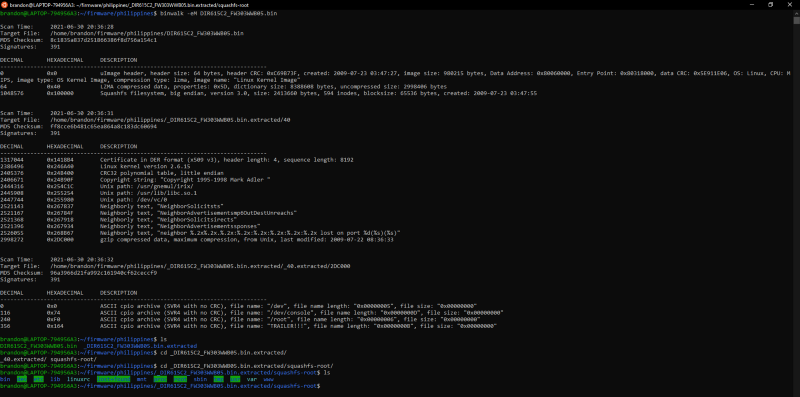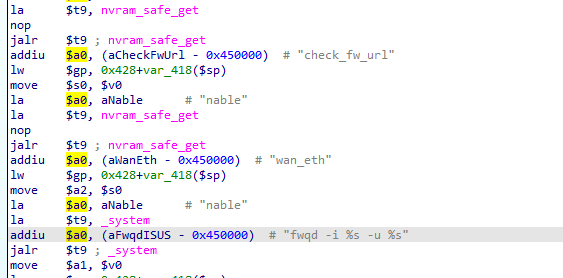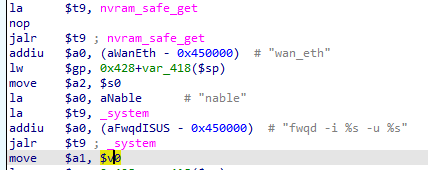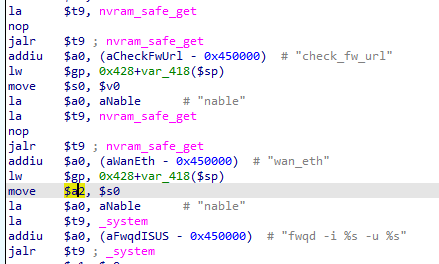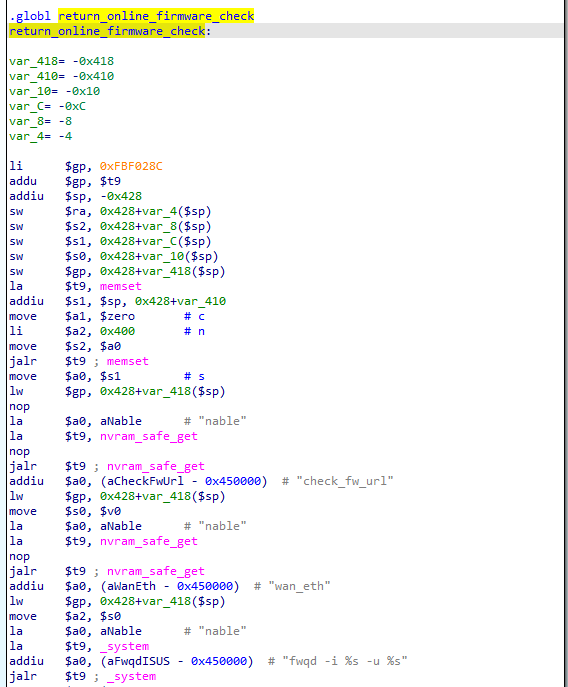Hacking the dlink DIR-615 for fun and no profit
Hello . In this writeup, i will show you how i found a potential remote code execution (CVE-2019–13561) in the dlink dir-615 firmware.
I Started up by downloading the firmware in the official site of dlink https://www.dlink.com.ph/dir-615/ . I downloaded the second firmware instead of the first since the first is the latest and is probably more secured. The file is a rar file, i simply unrar it and ran binwalk on it. And i managed to get the linux file system
| binwalkMy next goal is finding out what web server this firmware is using to reverse engineer it, so i used the command tree | grep httpto find out potential http server binary files and i found one called httpd. |
finding httpdAnd i found this file in the /sbin directory. Now time for reverse engineering
After running through the functions of httpd, i found an interesting function called return_online_firmware_check. What makes it interesting is that it has a call to the function _system.
system callThe _system is like a mixture of sprintf and system. It mixes string formatting and system into a one function. Upon looking more into the disassembly
We can see that the _system takes 3 arguments, in the register $a0, $a1 and $a2. We can see that in the first argument($a0), it takes a string that is equal to fwqd -i %s -u %s , *this is the code that will be executed by the *_system. We can see in the string that it has two %s and like i said, _system is like sprintf and system combined into one function so this string will be used for string formatting
We can see that the value of the second argument of _system($a1) is equals to the value of $v0. The $v0 register holds the return value of a function call. The last function call made is from nvram_safe_get so we can assume that the value $a1 is equal to the return value of the nvram_safe_get. I am not 100% sure what the nvram_safe_get do, it is an external function so icant reverse it and searching it on google is not giving me any useful result. But I will just assume that it gets the value of the variable given to it. We can see that before the nvram_safe_get call, the string wan_eth is moved to the first argument($a0) so that probably means this will get the value of the variable wan_eth. So now, we can assume that the value of the second argument($a1) of the _system **call* is the value of the variable **wan_eth **from the nvram*.
Next up, the third argument($a2), we can see that it takes the value of the register $s0. Going back, we can see that the value of the $s0 is equal to the value of the $v0. I already explained it above so i will just summarize it in this argument. So here, the value of the third argument($a2) is equal to the returned value of the function nvram_safe_get with an argument, check_fw_url. So this probably means that the third argument($a2) is equal to the value of the variable check_fw_url **from nvram.
With those all parameters we have, we can now assume that the _system call is equal to _system(“fwqd -i %s -u %s”,nvram_safe_get(“wan_eth”),nvram_safe_get(“check_fw_url”)).
The value of the wan_eth is constant, it is the value of the wan address of the router and we cant control it, however, we might be able to control the value of check_fw_url. If we can change the value of the check_fw_url to ;reboot; and we can achieve code injection since it will get passed to _system. However, i cant figure out where we can change the value of check_fw_url. If only i have the dir-615 router with me, i can try to find out where i can modify the value of this variable. But until then, this remote code execution bug is still a theory…………. OR IS IT
You see, even if we cant confirm the code injection bug, i found a cve similar to it. After searching the string check_fw_url in google, it gives me a link to CVE-2019–13561
Here, we can see that he found a code injection in dlink dir-655 in the online_firmware_check.cgi, in the check_fw_url. If you can remember, the function that we are reversing is called return_online_firmware_check
And the vulnerable variable that we are inspecting is the check_fw_url which matches in his cve. I guess the online_firmware_check.cgi is just a simple cgi script that calls the function return_online_firmware_check. Again, i cant confirm it since i dont have the dir-615 with me.
And there you have it, my writeup of a potential code injection vulnerability in the dlink dir-615/analysis of the cve 2019–13561. I found this bug in the 2009 version of the firmware of dir-615 so as long as your firmware is updated, you should be safe from it. Thanks for reading.
PS. I assumed that what nvram_safe_get is doing is getting the value of a variable from nvram because it is close to the function nvram_get which get the value of the string you provide to it from the nvram. You can see it in this writeup. https://elongl.github.io/exploitation/2021/05/30/pwning-home-router.html . Thanks again for reading.
